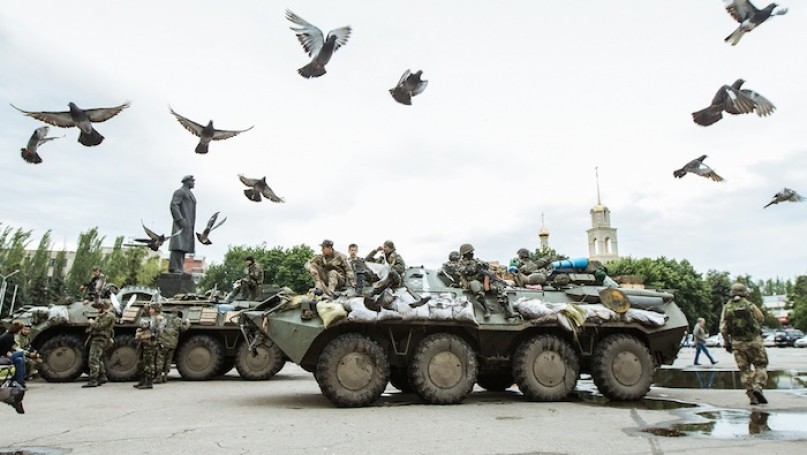
This is the third of three blogs on the validity of John Mearsheimer’s argument in his Foreign Affairs piece “Why the Ukraine Crisis Is the West’s Fault: The Liberal Delusions That Provoked Putin”. You can find the other posts on IR Theory and Practice.
Recent events in Ukraine have certainly demonstrated the lasting relevance of realism in international politics. For far too long analysts and scholars have tried to advance the notion that the end of the Cold War also meant the triumph of liberalism and that the world had moved into a “post-realism” era. In his Foreign Affairs article, “Why the Ukraine Crisis Is the West’s Fault,” John Mearsheimer brings an essential consideration to the forefront of debates over Ukraine, being that the west bears direct responsibility for Russia’s aggression.
Mearsheimer’s case is predicated on the belief that western arrogance surrounding the liberal world order has a causal connection to events in Ukraine. According to Mearsheimer, the three examples that prove this contention would be NATO expansion, EU expansion and democracy promotion into Eastern Europe which Mearsheimer sees as conscious efforts to either ignore or provoke Russia. To summarize his claims about Russian perceptions of NATO, EU and democracy enlargement, Mearsheimer contends: “No Russian leader would tolerate a military alliance that was Moscow’s mortal enemy until recently moving into Ukraine. Nor would any Russian leader stand idly by while the West helped install a government there that was determined to integrate Ukraine into the West.”
From a systemic point of view, Mearsheimer makes a strong case that the west’s eastward push would be cause for concern for the Russians. Throughout the 1990s and early 2000s Russia was not a threat to the west, and thus NATO expansion was not necessary from a security point of view, and the relevance of NATO as a security alliance itself came into question. Mearsheimer’s argument about western liberal delusions is best understood through NATO as it seemed the organization was evolving into a body more interested in promoting western ideas of human rights and security than a defensive alliance for the protection of its members, demonstrated clearly by the 1999 intervention in Kosovo. Russian paranoia about western expansionism was made significantly worse by the total disregard for Russia as a legitimate international actor, as it was perceived by many that the collapse of the Soviet Union had signaled a shift in Russian perceptions and domestic norms.
Where I diverge from Mearsheimer on this issue is the fundamental idea of causation. I would agree that the west is to blame at least in part, but I would not go so far as to claim that the current crisis in Ukraine was caused by the west.
Did western actions create a situation where the Russians felt threatened? Yes. Did the Russians believe the west was intentionally targeting Russian strategic assets in their expansionism? Yes. Was the west consciously moving to erode Russia’s sphere of influence? Yes.
All of this being admitted, the Russians chose to annex Crimea and to wage war either directly or indirectly in Eastern Ukraine making the cause for action their own perceptions. Laying blame for Russia’s decisions at the feet of the west requires a significant burden of proof that Mearsheimer fails to demonstrate if his effort is based on causation. In order to make such an argument, Mearsheimer would have to account for Russian behavior during the same period of time and his piece completely, and I would argue wrongly, absolves successive Ukrainian administrations and their porous decisions from the equation as well.
It may seem like a semantic argument to state that the west helped cause, rather than did cause, the crisis in Ukraine but from a theoretical point of view, this distinction is essential.
Further Reading on E-International Relations
- Opinion – The West’s Mental Lockdown over Putin’s Invasion of Ukraine
- Returning to Realism: The Other Face of the Ukraine Crisis
- Opinion – The West’s Credibility Crisis in the Midst of Putin’s War
- Opinion – Crisis in Ukraine and High-Intensity Psychological Warfare
- Opinion – Strategic Perspectives on the Russia-Ukraine War
- Opinion – The European Union’s Status in the Russia-Ukraine Crisis